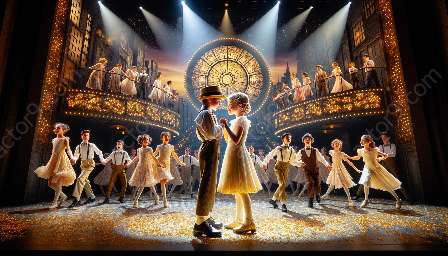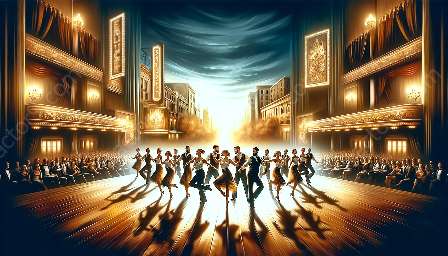Adapting historical events for Broadway productions raises significant ethical considerations. This practice involves transforming real-life events into artistic performances that are often viewed by large audiences. With the history of Broadway deeply intertwined with various genres of musical theater, it's crucial to understand the impact of historical accuracy and the treatment of sensitive subject matter in these adaptations.
The Intersection of History and Broadway
Broadway has a rich history that spans over a century, offering audiences a diverse array of theatrical experiences. Historically, Broadway productions have been inspired by a wide range of sources, including literature, folklore, and real-life events. Over time, the genre of musical theater has evolved to incorporate historical narratives as a means of storytelling.
When considering ethical implications, it's important to recognize the influence of socio-political context, cultural sensitivity, and historical accuracy. Many Broadway productions aim to depict significant events, individuals, or periods in history, and the responsibility to represent these stories with respect and integrity is paramount.
The Ethical Impact of Historical Adaptations
Adapting historical events for Broadway presents unique challenges and responsibilities. Creators and producers must navigate the fine line between artistic expression and ethical considerations. The portrayal of historical figures and events must be approached with thoughtfulness and a commitment to preserving the integrity of the original narrative.
One ethical consideration is the portrayal of sensitive or traumatic events. Broadway adaptations often bring emotionally-charged historical events to life, necessitating a delicate balance between dramatic storytelling and reverence for the subject matter. The potential impact on audiences, particularly those with personal connections to the historical events, must be carefully acknowledged.
Historical Accuracy and Integrity
Ensuring historical accuracy and integrity in Broadway adaptations is fundamental to maintaining ethical standards. While artistic liberties are inherent in any creative interpretation, respecting the authenticity of historical events is crucial. This includes thoughtful research, consultation with historians or experts, and an earnest effort to present a balanced and nuanced portrayal of the past.
Furthermore, ethical considerations extend to the cultural representation and diversity within historical adaptations. Sensitivity to cultural perspectives, identities, and experiences is imperative when bringing historical narratives to the stage. Embracing diverse voices and ensuring accurate cultural depictions can enhance the ethical standing of Broadway productions based on historical events.
Respecting the Subject Matter
Respect for the subject matter is at the core of ethical adaptations of historical events for Broadway. This involves acknowledging the impact that historical events have had on individuals and communities, and striving to honor their experiences through the production. Sensitivity, empathy, and a commitment to truthfully representing the legacy of the events in question are essential elements of ethical adaptation.
Ultimately, the ethical considerations in adapting historical events for Broadway are complex and multifaceted. By navigating the intersection of history, storytelling, and entertainment with consciousness and respect, Broadway productions can achieve a balance between artistic expression and ethical responsibility.
In Conclusion
Adapting historical events for Broadway offers a platform for engaging storytelling and cultural impact. Understanding and addressing the ethical considerations inherent in these adaptations is crucial in maintaining the integrity of the historical narratives being brought to life on stage.



































